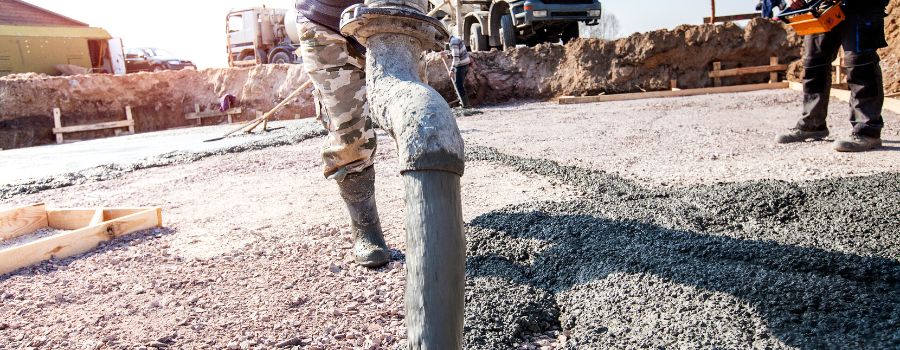
Safety Precautions When Working with Ready-Made Concrete
Working with ready made concrete can be a highly efficient and effective way to complete construction projects in the UK. However, it's essential to prioritize safety when handling this versatile material. Concrete work involves several potential hazards that can result in serious injuries if not managed correctly. Here, we will explore the safety precautions necessary for working with ready-made concrete.
Personal Protective Equipment (PPE):
Before engaging in any concrete-related tasks, ensure that all workers are equipped with the appropriate personal protective equipment. This should include:
Respiratory Protection:
Concrete work often generates dust and fine particles that can be harmful when inhaled. To protect against respiratory issues, provide workers with N95 respirators or masks equipped with proper filtration. Ensure that these masks are well-fitted and regularly replaced.
Adequate Ventilation:
Proper ventilation is crucial when working with concrete in enclosed spaces or areas with limited airflow. Ensure there is a constant exchange of air to disperse dust and fumes. Utilize exhaust fans, open windows, or install dust collection systems as necessary.
Safe Handling and Mixing:
Concrete mixing requires attention to detail. Follow these precautions:
Manual Handling Precautions:
Concrete is heavy, and improper lifting techniques can lead to musculoskeletal injuries. Train workers in safe lifting practices, including:
Slips, Trips, and Falls:
Wet or uneven surfaces can result in slips, trips, and falls. To prevent accidents:
Formwork and Shoring:
When working on structures, ensure that formwork and shoring are in excellent condition. Inspect them regularly for stability and integrity to prevent collapses or accidents.
Electrical Safety:
Electricity is often required for tools and equipment used in concrete work. Ensure that all electrical systems and equipment are properly grounded and regularly inspected for safety.
First Aid and Emergency Response:
In case of accidents or injuries, have a well-equipped first-aid kit on-site, along with trained personnel who can administer first aid. Additionally, establish clear emergency response procedures, including the location of emergency exits and assembly points.
Training and Supervision:
Lastly, but perhaps most importantly, ensure that all workers are adequately trained in concrete work safety protocols. Supervision and ongoing safety reminders can help reinforce safe practices on the job site.
Conclusion
Working with ready-made concrete offers many benefits, but it's essential to prioritize safety at all times. By following these safety precautions, construction professionals can reduce the risk of accidents and injuries, ensuring that projects are completed safely and efficiently. Remember that safety is an ongoing commitment, and continuous training and vigilance are key to preventing accidents in the construction industry.
For more details on ready made concrete, connect with the team!